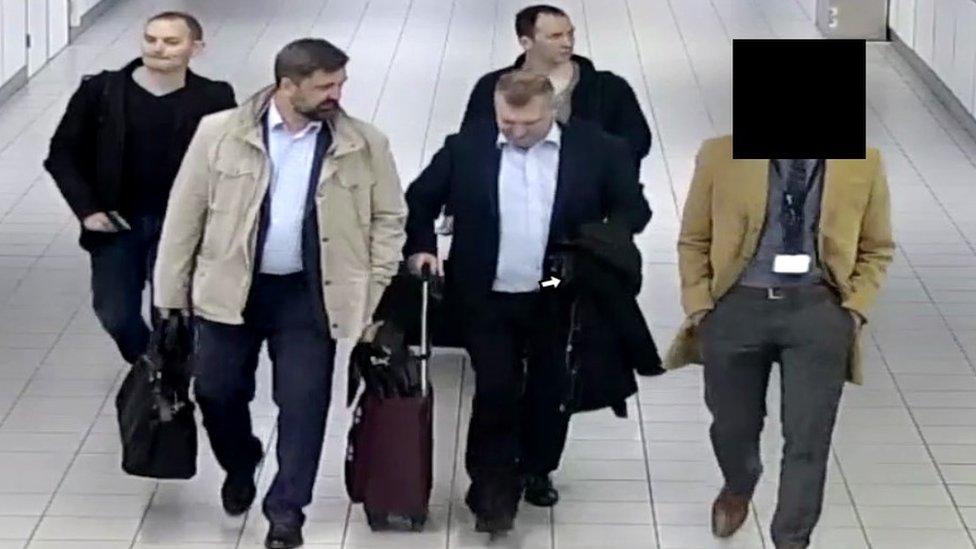Have Russian spies lost their touch?
- Published
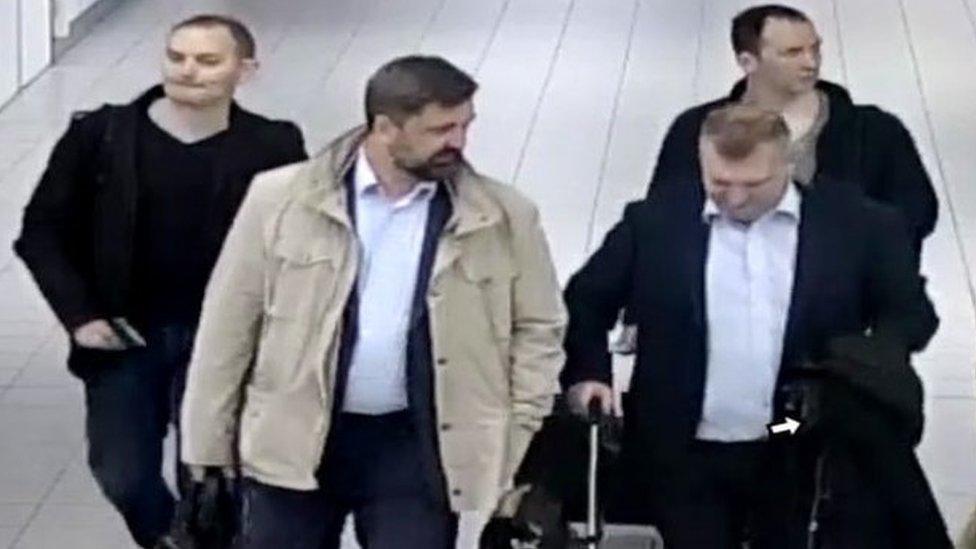
The four suspected Russian agents had travelled to the Netherlands on diplomatic passports in April
It's not hard to find the spot from where an alleged Russian spy set out to launch a cyber-attack in The Hague.
Alexei Morenets kept the receipt for his taxi to the airport. At the address marked on it, there's a young soldier in uniform guarding the entrance.
When I ask whether it's a base for Russian military intelligence agency, the GRU - a cyber-warfare hub as Western intelligence agencies claim - the soldier makes a call and then tells me to leave the premises immediately. I don't hang around.
But the suspected GRU agents just uncovered in the Netherlands left a trail of evidence online as well as on paper.
Of the four men caught trying to hack the wifi network of the chemical weapons watchdog, the OPCW, the BBC found two giving defence ministry buildings as their address on official documents.
One of those documents is a vehicle registration database. The Bellingcat online investigations team later found 305 cars listed there, linked to the same military facility.
The BBC's Gordon Corera looks at why the Russian cyber plot sting was surprising
That suggests an extraordinary security breach for a supposedly secret service.
"They could have used their home addresses but they wanted privileges - not to pay fines for violating traffic rules," Alexander Gabuev of the Carnegie Moscow Centre explains. He calls it a symbol of "endemic corruption".
"If you actually see the evidence [from Dutch intelligence], it doesn't matter whether you support Putin or not, you are just embarrassed by the incompetence," he argues.
As relations with the West have plummeted, Russia's secret services have stepped up their activities. But GRU operations have been exposed, and failed, the most.
"I don't think we should see them as the 'Keystone Cops' of spy craft," argues long-time security analyst Mark Galeotti, referring to the hapless fictional police characters.
"The GRU has been extremely active, and inevitably some of those operations are going to be blown. That doesn't mean they are fools," he adds, suggesting that in the world of modern technology and security cameras, Russia accepts that keeping cover is difficult.
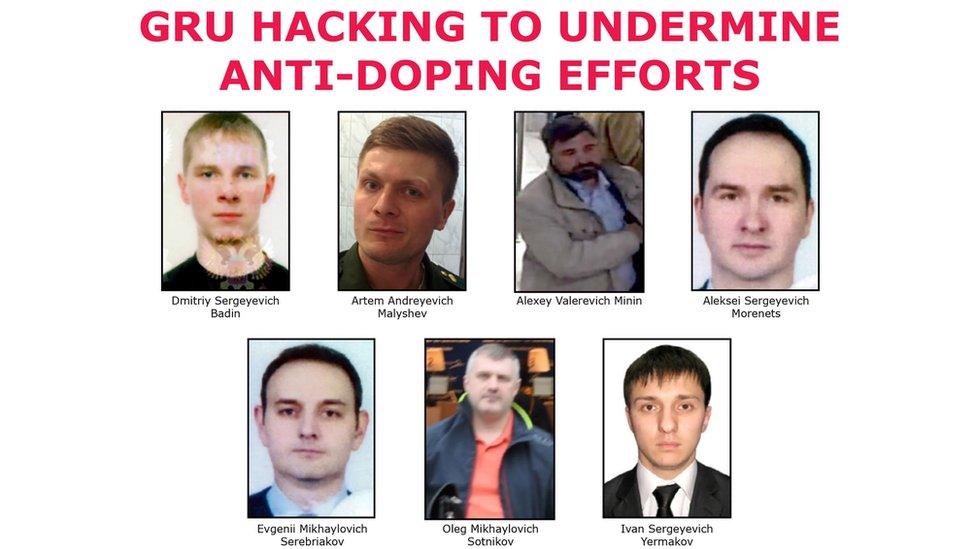
The FBI has released a "wanted" poster, naming seven suspected Russian agents
"Clearly the guidance they are getting is, within bounds, it doesn't really matter. Don't worry too much about the fallout," Mr Galeotti says.
That approach partly explains the stray taxi receipt.
"Our driver certainly wrote that receipt," Benjamin Shaginyan, the boss of the taxi firm, confirmed to the BBC. "He can't recall the exact journey as it was a long time ago. But it's genuine."
Some took to social media to mock the man who had clung on to such incriminating evidence.
"Accounting for money on work trips is a nightmare!" one user said.
Led by the foreign ministry, officials here have brushed off the latest accusations in traditional style, as "spy mania".
They claim the co-ordinated allegations coming from Britain, the US and the Netherlands reveal a "stage-managed" campaign against Russia.
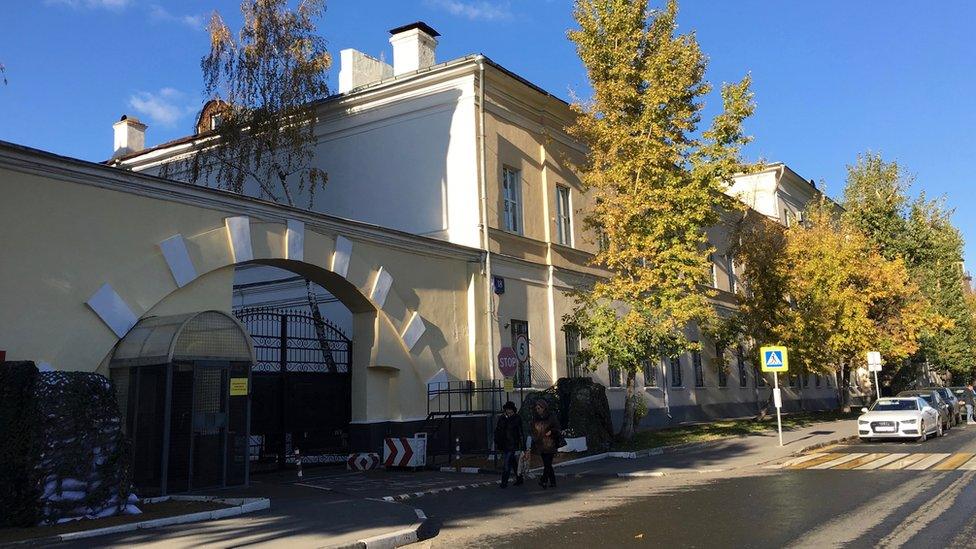
The GRU's 26165 military unit is based in Komsomolsky Prospekt, Moscow
That's also the line taken by retired Lt Gen Yevgeny Buzhinsky, even with four men caught red-handed in The Hague.
"You say this is evidence. It's not evidence to me," he insists, particularly annoyed by talk of GRU incompetence.
"Russian intelligence was believed to be among the best in the world. Now you want to present a bunch of fools, absolutely incompetent, absolutely stupid, non-professional idiots? It's insulting," Yevgeny Buzhinsky says.
But some of the men just exposed have a considerable presence online for secret agents.
Two are listed as players in an amateur Moscow football league along with their photographs. A team-mate at Radiks said the club once boasted multiple members of the security services.
"It was like that at the start, but times change," Alexei Baklykov told me, claiming he had never met either suspect in person.
Another of the accused, Artyom Malyshev, sold several items online last year including an old acoustic guitar and a smartphone.
Listed as "wanted" by the FBI this week for hacking, he has also registered on a dating website along with a profile photograph winking at the camera and some sporty action shots.
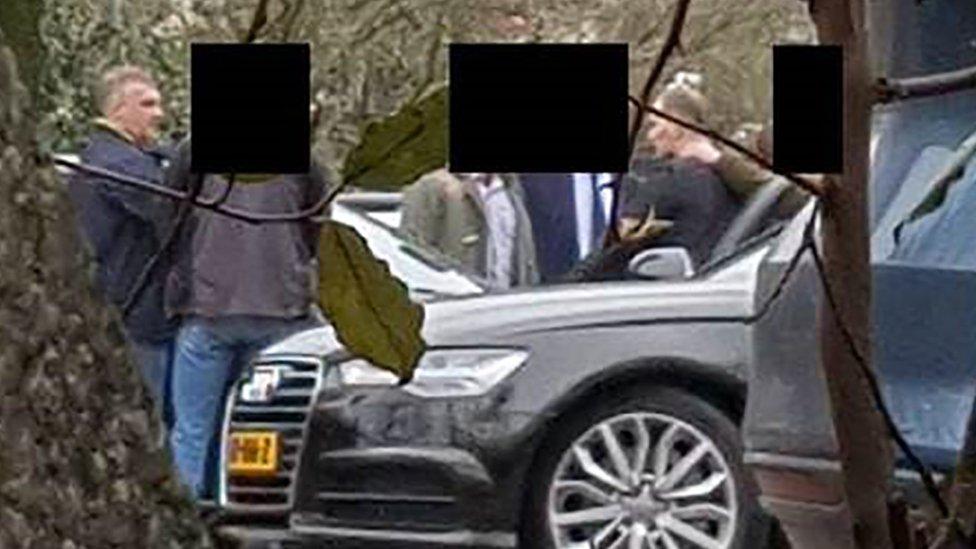
The alleged Russian agents were caught by Dutch police in a car park near the OPCW offices
By naming these men, Western officials hope to halt further Russian attacks. But at a street market near the military complex housing Unit 26165 - the supposed command centre of cyber-warriors - public reaction to the accusations was mixed.
"I don't know who to believe. It's confusing," said Valery at a stall stacked with pots of golden honey.
"It's all nonsense," a woman shopper protested. "Do you think our spies are total idiots? I think they're wonderful."
So Russia looks set to ride this shame-storm out - uncomfortable, perhaps, but unlikely to change tack.
"Putin is not losing any sleep over this. The question is whether it moves beyond embarrassing stories, to more sanctions," Mark Galeotti points out.
"We are at war, and losing a battle doesn't mean you surrender. I think that's very much the view in the Kremlin," Alexander Gabuev adds.
"Yes, we were defeated in this battle. But we go home, learn our lessons - and then continue."
- Published6 October 2018
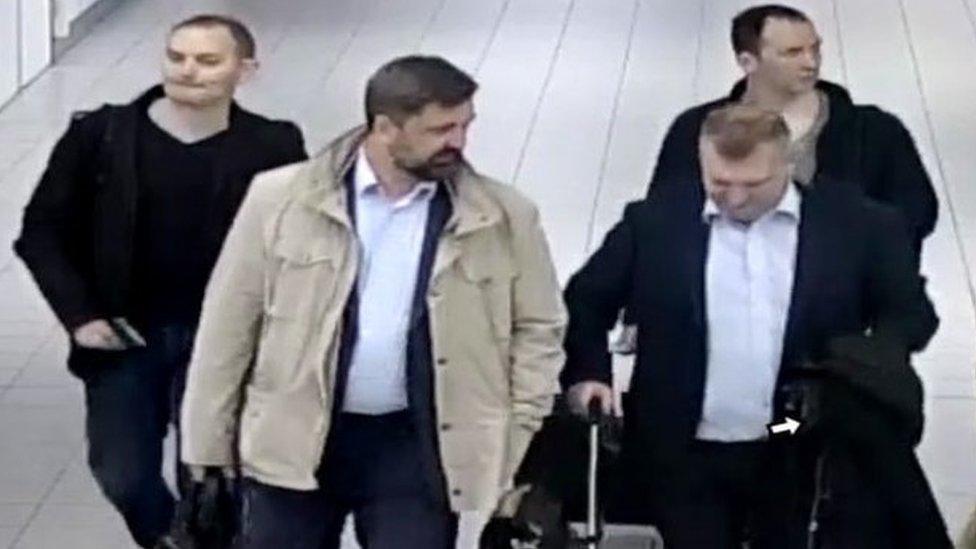
- Published4 October 2018
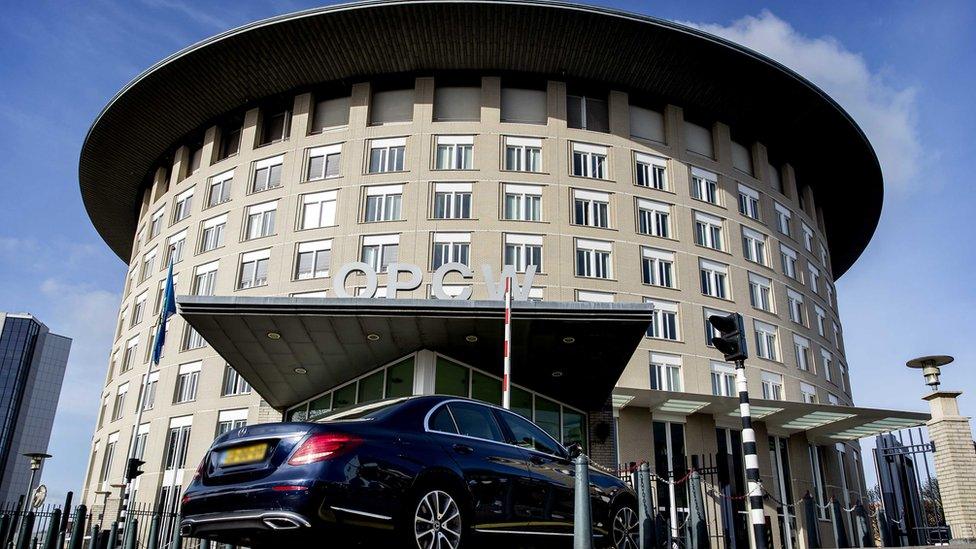
- Published20 September 2016
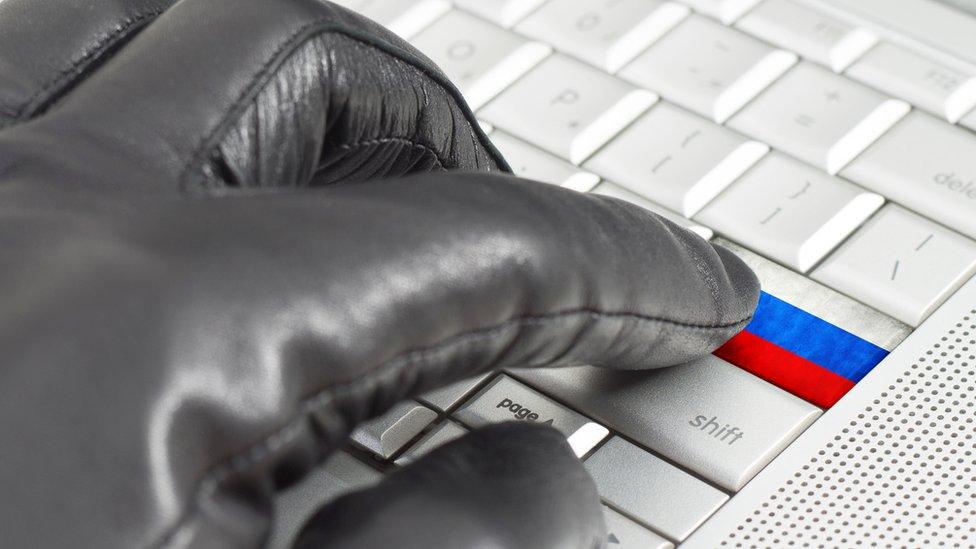
- Published16 April 2018
- Published4 October 2018
